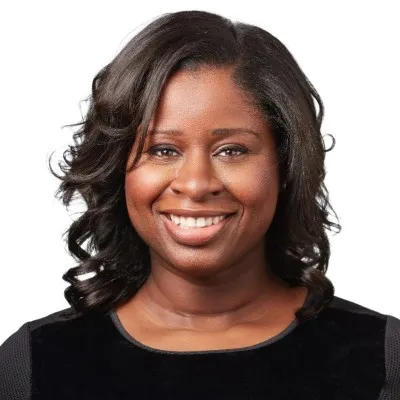Strategies for Building a Successful Company With Strong Values


Working with the government requires a particular type of vision and patience, and Kendall Holbrook, CEO at Dev Technology Group, has been helping lead Dev in becoming a different type of government contractor. She recently stopped by The BragWorthy Culture and talked about growing from 40 to 250 team members since she arrived, as well as how she and the team wrote their company values together and use them every day.
Dev offers mission-critical applications and systems that protect and serve American citizens. Its client list includes the departments of Homeland Security, State, Defense and the National Guard. It specializes in full-stack application development, biometrics and identity management, cloud and infrastructure optimization, IT and legacy modernization and data management.
Kendall didn’t start her 13-year tenure at Dev at the top. She started as a VP of Business Development and worked her way up. In fact, right before being hired at Dev she had started her own business, confident that after leaving her last position at a large organization she wanted to build a company. But Dev offered her a chance to build a company, but on a larger scale. Dev was open to her continuing to run her own business at the same time but, as time went on, both parties realized they were doing great work together and Kendall fully committed to her work at Dev.
A Different Kind of Government Contractor
It was a big change at first. Kendall had come from a publicly-traded corporation with lots of help for projects and now she was rolling her sleeves up with other team members, doing everything with limited resources. But that environment also drove home a small-business lesson for her:
“At publicly-traded organizations, a lot of leadership decisions are made based on what everyone from the outside thinks, what Wall Street thinks, about the organization. But in a small, privately-held business, you get to make the right decisions for the clients, for the employees.”
One of those early decisions was to become a prime contractor. Prime contractors work directly with the government and manage subcontractors directly. Ultimate responsibility for projects falls on them.
By being a prime contractor, Dev created a more stable environment for its team members, an environment that would allow them to progress and grow with the company. Dev smashed through its target of 50% of its own prime work and 50% subcontractor work in the first year, and then grew to 80% prime work. That growth allowed it to have control of its contracts, talk directly with clients and develop the team properly.
Kendall noted that government work is distributed among a pretty small pool and if you’re not doing a good job, word spreads and, before too long, you’re not getting any more contracts. On the other hand, if you do well, the government will keep you around. Dev had the plan to grow slowly, not taking a swing at things it didn’t have experience with but instead sticking to what it knew well.
Company Values
This growth eventually led to Kendall’s promotion to CEO in 2018 and with that promotion came a reorganization of the business. One of the aspects of that reorganization was writing down the company values, as Dev was moving from a founder-run company to a larger, growing business.
Kendall used this opportunity to get input from the entire company. An employee survey collected a number of words that employees identified with the company, and the leadership team wrote down their own words without reference to those from the survey. Once all the words were brought together, they prioritized and voted and wrote definitions. Here’s what they came up with:
- Integrity: Trusted to always do the right thing.
- Respect: Treat individuals with respect and compassion.
- Collaboration: Working together we accomplish more and make better decisions.
- Innovation: Tackling every challenge with passion, an open mind and a willingness to learn from every success and failure.
- Resilience: Showing determination, agility and commitment in every situation.
- Community: Feeling connected to each other, our clients’ mission and the communities where we live.
Kendall sees these values used every day in the business and particularly in the early days of the pandemic. A week before any government restrictions came into effect, Dev had sent its team home and started the process of negotiating for off-site work with all the clients. Kendall saw this move as leveraging the company’s respect and integrity.
Something else that Dev did proactively was to buy a bunch of Covid tests and ship them to team members. It wanted to make sure staff didn’t have to scramble to get one and, sure enough, there were shortages, but not for the well-prepared Dev team. Here were its values of resilience and community in action.
Now, after the pandemic, as the company works in a hybrid model, it is putting its values of collaboration and innovation to work, figuring out what the strategy will be in the future.
Kendall likes to think that part of her job as CEO is to think about what the company needs to do to perform 12 – 18 months in the future. Part of that is predicting what the world of work will look like for the company and its industry. Kendall doesn’t pretend to know exactly how that will shake out, but she is confident that by listening to her team and following the company values they created together, they have a bright future ahead.
Check Out the Full Episode
If you’d like to learn more about Dev and Kendall’s journey to CEO, listen to our full interview on Apple or Spotify.
Looking to build your own BragWorthy Culture? Fringe can help. Fringe is the number one lifestyle benefits marketplace. Give your people the power of choice and save a ton of administrative headaches by consolidating existing vendors and programs into a simple, automated platform. Talk to our team to get started.


